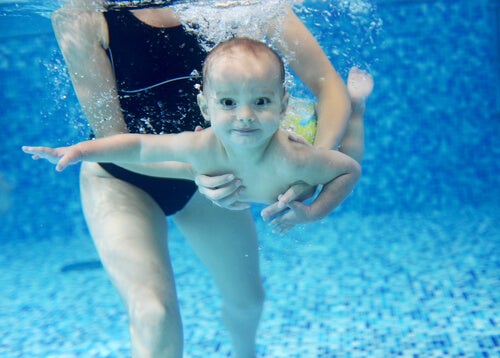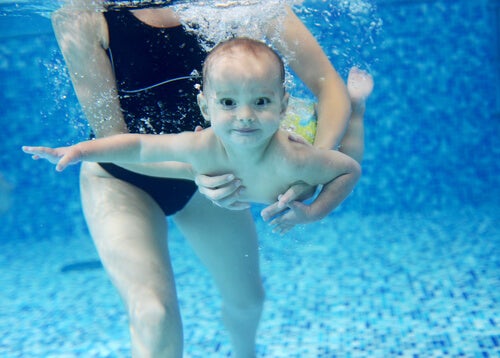Very Important To All Parents! Secondary Drowning In Children

Have you heard about secondary drowning ? Next, we inform you everything you need to know to protect yourself and your children.
With the arrival of summer, it is common for the always regrettable drownings to occur in beaches or swimming pools. While it is true that this is a reality that affects both adults and children, we must take special care with the latter.
Being aware of their movements, taking care when they enter the beach or if the pool has treatment plants without a grid, or other material risks, is vital for children to enjoy a risk-free bath.
We are sure that you too shudder at the news of those terrible accidents where little ones lose their lives after drowning.
However, what is not so well known is other types of incidents that each year, also take several children’s lives.
We are talking about secondary drowning. In this case we have children or adults who, after having suffered a brief drowning, are rescued and revived. They return home normally, but after hours or days, they begin to feel very tired, go to sleep and, unfortunately, do not wake up again.
Terrible, but true.
Secondary drowning: a silent death
- Dry drowning occurs when the body and brain “feel” that you are going to swallow water. So what it does is produce a spasm of the larynx so that it closes for protection. No water enters, but neither does air enter, which causes us to run out of oxygen.
- Secondary drowning usually occurs when water enters the lungs and stagnates. We can resuscitate the child, but that water is stored fluid that soon turns into pulmonary edema.
- This pulmonary edema is not a problem at first, but after hours and even days it can cause death.
- We must also bear in mind that swimming pool water contains many chemicals. If these are swallowed and stay in the lungs, they become inflamed and irritated.
- Chlorine is a great irritant to the bronchial tubes.
- After drowning, we can make the child expel some of the water and revive normally, but there may still be some water in the lungs.
After a few hours, this water inflames the bronchi, thus causing edema and, consequently, a drop in oxygen in the blood.
recommendations

- If your child suffers a drowning, no matter how small and even if he recovers, it does not matter: take him to the emergency room.
- Do not lose sight of children at any time when they are at the beach or pools.
- Make learn to swim as soon as possible.
- Now, even if they know how to swim, don’t trust yourself either. Sometimes they can get dizzy or get hooked on anything in the pool, so it’s worth playing “guard police” and watching their every step.
Enjoy the bath with them in summer, but always keep this type of information in mind. Worth it!









